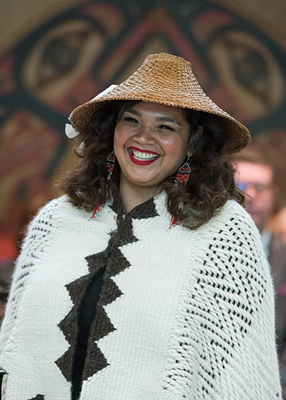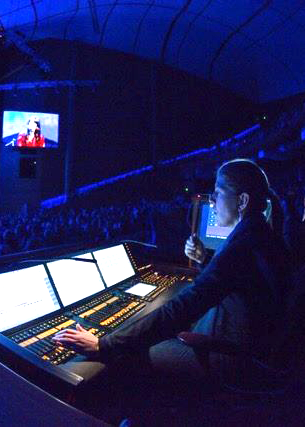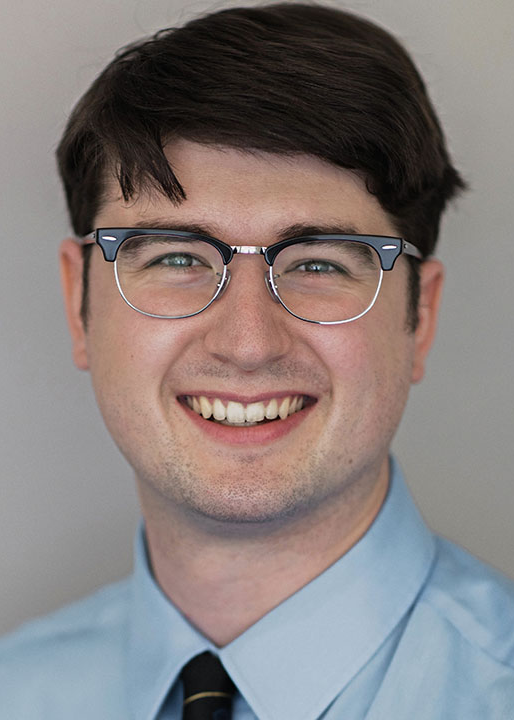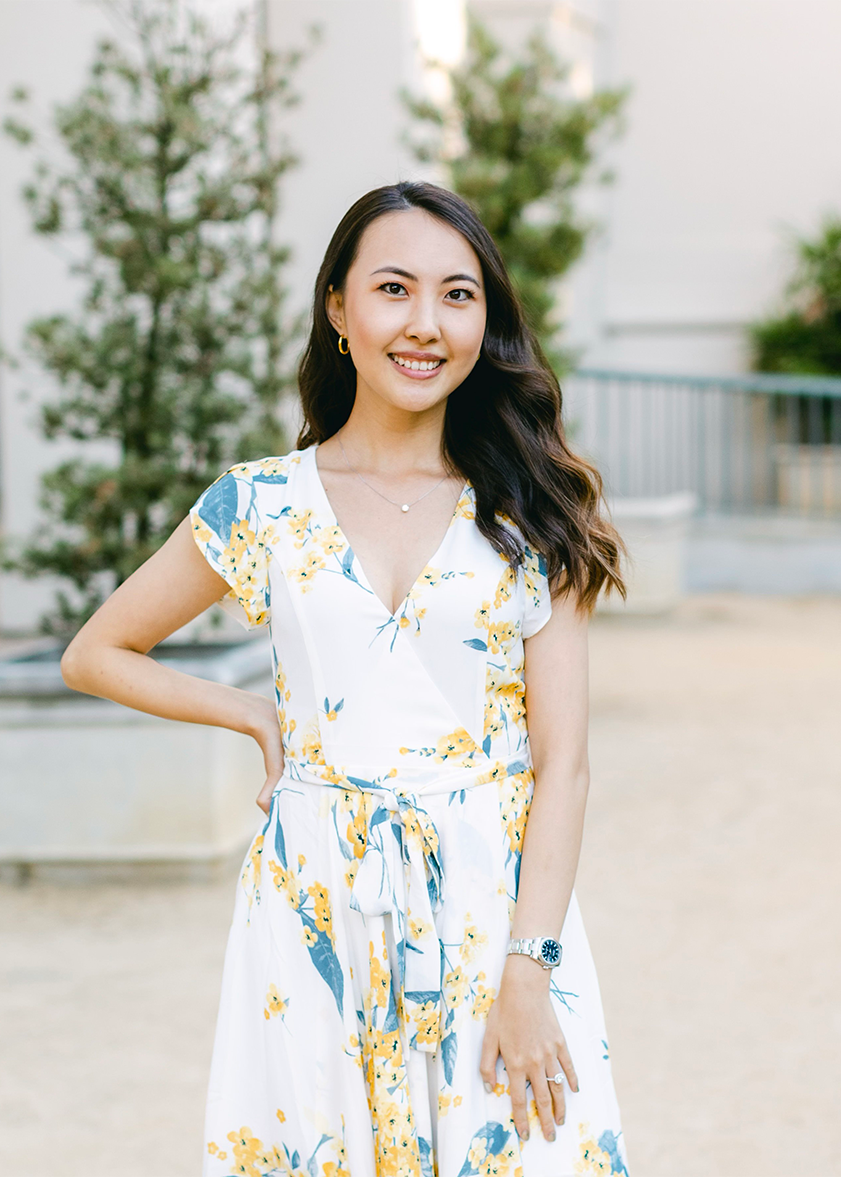Jessica La Rochelle

What choices did you make at UBC that contributed to your career success / journey?
It is difficult for me to answer this question because I feel like I did not make choices alone. I would not be here today without the love, support, teachings, and guidance of my family, especially my husband and grandparents. My professors, advisors, and mentors gave me space to flourish and to cultivate an environment of respect and kindness, with a bit of boundary pushing. In the words of the late Tsimilano, Elder Vincent Stogan, and modeled by one of my mentors, Dr. Jo-ann Archibald, I share the teachings of “hands back, hands forward”; I continue my work with my left palm facing upwards to receive the teachings from the ancestors and I place my right palm facing downwards to pass on these teachings on to the generations who follow me.
Is your current career path as you originally intended? What challenges did you face in launching your career?
Not at all! I thought I was going to become a librarian. My favourite subject was English literature and I loved to read. I planned to be an English major and then go into library and archival studies. I ended up in Indigenous education rather serendipitously… I was a summer student for the Native Education College library and when I graduated, I emailed my former boss asking if she knew of any job opportunities. A few days later, I got a call from the Dean of Student Services asking if I could start in the admissions office as an advisor the following week. I fell in love with the work and career opportunities.
Why did you choose your program at UBC and what did you enjoy most about it?
I knew I wanted to pursue a master’s degree but was waiting for a program that aligned with my worldview, values, and career goals. When I heard about the MEd in Leadership in Indigenous Education, that would be delivered in partnership with Squamish Nation (SQEL), I knew the timing was right. I enjoyed that it was Indigenous led, included learning on the land, and the research was meaningful and would make a difference for future generations. A bonus was being able to read my papers and discuss readings with my grandparents and be mentored by them.
For my BA, I appreciated having support from my Arts advisor Tanya Bob. I had no idea what I wanted to do when I applied to UBC and I appreciated the range of opportunities that a Bachelor of Arts degree provided. I ended up choosing sociology and English literature because those were the courses I enjoyed the most. I found a lot of the sociology and anthropology courses fascinating and engaging and the minor in English literature aligned with my love of reading. I originally planned to become a librarian or an archaeologist (thanks, Indiana Jones). My Gram wanted me to get into linguistics but I struggled with the orthography.
What were some of your most meaningful experiences at UBC?
I am eternally grateful for my transformational experience at UBC. I walked a fine line as a graduate student where I was encouraged to be critical of educational systems and institutions, while still being a staff member at UBC. Describing how our people face systemic racism, justifying why people should care when our people go missing or are murdered, and explaining how white privilege exists. As I consider my experience as an undergraduate at UBC, compared to my experience later as a graduate student in an Indigenous program and cohort of mainly Indigenous students, I see what an impact this can have on future Indigenous students within academia. During my research, one of the participants talked about how in NITEP (The Indigenous Teacher Education Program), they are a group of strong, intelligent Indigenous people and that may scare some people because the students can create so much power, transformation and change.
What was your first job after graduation and what other jobs did you have before your current position?
- Admissions Advisor, Native Education College (NEC) 2006
- Associate Registrar, Native Education College 2007
- Academic Planner, NVIT 2007-2009
- Aboriginal Research Officer/Intern, Aboriginal (now Indigenous) Youth Internship Program (IYIP) 2009-2010
- Assistant Director, Indigenous Teacher Education Program (NITEP) 2010-2020
- Manager, Office of Indigenous Education 2016-2020
What do you like about your current job and what do you find challenging? How does it relate to your degree?
I have worked in a variety of positions within the post-secondary context from student services to administration. My experience in the post-secondary realm has shown me not only the impact education can have on an individual but also how it can lift up a community and inspire change. The inclusion of Indigenous ways of knowing and being also benefits non-Indigenous learners by challenging assumptions, addressing historical fallacies, and opening their minds to different ways of learning.
In my current role, I am responsible for strategic development, implementation, management, coordination and assessment of programs and services to support undergraduate Indigenous students in meeting their academic and personal goals. I also develop key stakeholder relationships with both individuals and teams across the University that are integral to minimizing systemic barriers and optimizing opportunities and supports for Indigenous student recruitment, admission, and academic success.
On the surface, it may seem like my BA in sociology and English literature does not directly relate but I believe that my BA helped me to build my interpersonal skills, positive attitude, respectful approach, passion for education, and ability to work collaboratively as well as individually (thanks group projects!).
Both my Bachelor of Arts and Master of Education degrees strengthened my ability to create partnerships, foster relationships, increase mentorship opportunities and create an environment that promotes and empowers students, educators, and community members. I strive to cultivate solid and respectful relationships in all aspects of my work and I want to mentor students and current and future changemakers achieve academic success and holistic wellbeing.
From your experience, what has been the value of having an Arts degree?
Having a UBC Arts degree opened so many doors for me and also helped me in my recruitment and program administration role as I could share my story with prospective students and talk about what it is like to be an Indigenous student at UBC. Also, the opportunity to connect with alumni and networks.
What advice would you give to students and alumni interested in breaking into your industry?
Do not underestimate the benefit of relationship building. I am where I am today because of the positive professional relationships I built with my colleagues, supervisors, and students. I am grateful for any mentorship opportunities and was eager to take on new challenges and show initiative. When my supervisor or mentor shared something with me that was helpful, I did my best to model that for my students and staff and continue the process of reciprocity and intergenerational learning. Also, the Indigenous education community is small and you will most likely encounter the same people in different roles.
What advice would you give your graduating self?
Don’t worry about where you are going– focus on the journey to get there.
Jessica La Rochelle



What choices did you make at UBC that contributed to your career success / journey?
It is difficult for me to answer this question because I feel like I did not make choices alone. I would not be here today without the love, support, teachings, and guidance of my family, especially my husband and grandparents. My professors, advisors, and mentors gave me space to flourish and to cultivate an environment of respect and kindness, with a bit of boundary pushing. In the words of the late Tsimilano, Elder Vincent Stogan, and modeled by one of my mentors, Dr. Jo-ann Archibald, I share the teachings of “hands back, hands forward”; I continue my work with my left palm facing upwards to receive the teachings from the ancestors and I place my right palm facing downwards to pass on these teachings on to the generations who follow me.
Is your current career path as you originally intended? What challenges did you face in launching your career?
Not at all! I thought I was going to become a librarian. My favourite subject was English literature and I loved to read. I planned to be an English major and then go into library and archival studies. I ended up in Indigenous education rather serendipitously… I was a summer student for the Native Education College library and when I graduated, I emailed my former boss asking if she knew of any job opportunities. A few days later, I got a call from the Dean of Student Services asking if I could start in the admissions office as an advisor the following week. I fell in love with the work and career opportunities.
Why did you choose your program at UBC and what did you enjoy most about it?
I knew I wanted to pursue a master’s degree but was waiting for a program that aligned with my worldview, values, and career goals. When I heard about the MEd in Leadership in Indigenous Education, that would be delivered in partnership with Squamish Nation (SQEL), I knew the timing was right. I enjoyed that it was Indigenous led, included learning on the land, and the research was meaningful and would make a difference for future generations. A bonus was being able to read my papers and discuss readings with my grandparents and be mentored by them.
For my BA, I appreciated having support from my Arts advisor Tanya Bob. I had no idea what I wanted to do when I applied to UBC and I appreciated the range of opportunities that a Bachelor of Arts degree provided. I ended up choosing sociology and English literature because those were the courses I enjoyed the most. I found a lot of the sociology and anthropology courses fascinating and engaging and the minor in English literature aligned with my love of reading. I originally planned to become a librarian or an archaeologist (thanks, Indiana Jones). My Gram wanted me to get into linguistics but I struggled with the orthography.
What were some of your most meaningful experiences at UBC?
I am eternally grateful for my transformational experience at UBC. I walked a fine line as a graduate student where I was encouraged to be critical of educational systems and institutions, while still being a staff member at UBC. Describing how our people face systemic racism, justifying why people should care when our people go missing or are murdered, and explaining how white privilege exists. As I consider my experience as an undergraduate at UBC, compared to my experience later as a graduate student in an Indigenous program and cohort of mainly Indigenous students, I see what an impact this can have on future Indigenous students within academia. During my research, one of the participants talked about how in NITEP (The Indigenous Teacher Education Program), they are a group of strong, intelligent Indigenous people and that may scare some people because the students can create so much power, transformation and change.
What was your first job after graduation and what other jobs did you have before your current position?
- Admissions Advisor, Native Education College (NEC) 2006
- Associate Registrar, Native Education College 2007
- Academic Planner, NVIT 2007-2009
- Aboriginal Research Officer/Intern, Aboriginal (now Indigenous) Youth Internship Program (IYIP) 2009-2010
- Assistant Director, Indigenous Teacher Education Program (NITEP) 2010-2020
- Manager, Office of Indigenous Education 2016-2020
What do you like about your current job and what do you find challenging? How does it relate to your degree?
I have worked in a variety of positions within the post-secondary context from student services to administration. My experience in the post-secondary realm has shown me not only the impact education can have on an individual but also how it can lift up a community and inspire change. The inclusion of Indigenous ways of knowing and being also benefits non-Indigenous learners by challenging assumptions, addressing historical fallacies, and opening their minds to different ways of learning.
In my current role, I am responsible for strategic development, implementation, management, coordination and assessment of programs and services to support undergraduate Indigenous students in meeting their academic and personal goals. I also develop key stakeholder relationships with both individuals and teams across the University that are integral to minimizing systemic barriers and optimizing opportunities and supports for Indigenous student recruitment, admission, and academic success.
On the surface, it may seem like my BA in sociology and English literature does not directly relate but I believe that my BA helped me to build my interpersonal skills, positive attitude, respectful approach, passion for education, and ability to work collaboratively as well as individually (thanks group projects!).
Both my Bachelor of Arts and Master of Education degrees strengthened my ability to create partnerships, foster relationships, increase mentorship opportunities and create an environment that promotes and empowers students, educators, and community members. I strive to cultivate solid and respectful relationships in all aspects of my work and I want to mentor students and current and future changemakers achieve academic success and holistic wellbeing.
From your experience, what has been the value of having an Arts degree?
Having a UBC Arts degree opened so many doors for me and also helped me in my recruitment and program administration role as I could share my story with prospective students and talk about what it is like to be an Indigenous student at UBC. Also, the opportunity to connect with alumni and networks.
What advice would you give to students and alumni interested in breaking into your industry?
Do not underestimate the benefit of relationship building. I am where I am today because of the positive professional relationships I built with my colleagues, supervisors, and students. I am grateful for any mentorship opportunities and was eager to take on new challenges and show initiative. When my supervisor or mentor shared something with me that was helpful, I did my best to model that for my students and staff and continue the process of reciprocity and intergenerational learning. Also, the Indigenous education community is small and you will most likely encounter the same people in different roles.
What advice would you give your graduating self?
Don’t worry about where you are going– focus on the journey to get there.



